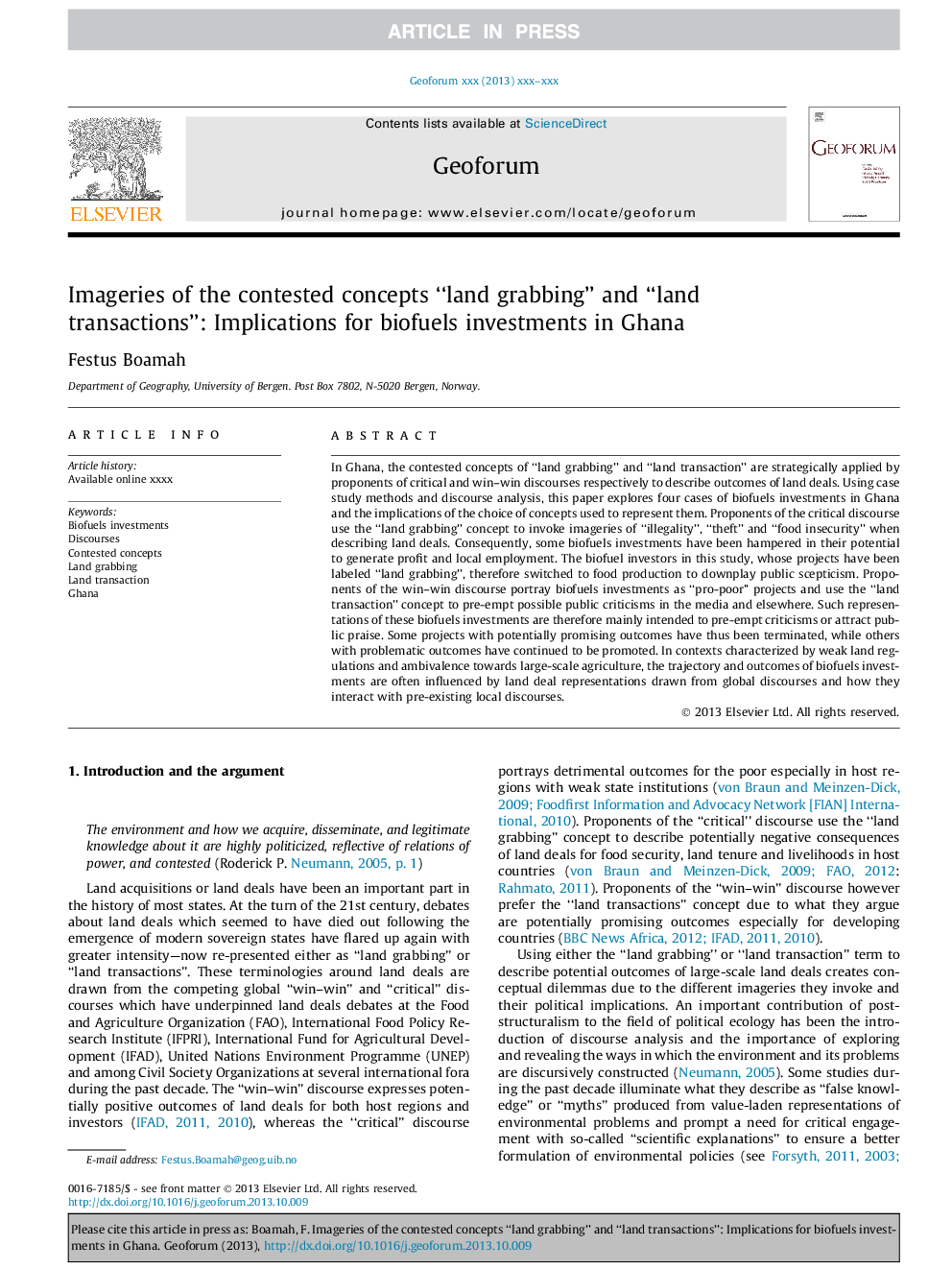| Article ID | Journal | Published Year | Pages | File Type |
|---|---|---|---|---|
| 5074032 | Geoforum | 2014 | 11 Pages |
Abstract
In Ghana, the contested concepts of “land grabbing” and “land transaction” are strategically applied by proponents of critical and win-win discourses respectively to describe outcomes of land deals. Using case study methods and discourse analysis, this paper explores four cases of biofuels investments in Ghana and the implications of the choice of concepts used to represent them. Proponents of the critical discourse use the “land grabbing” concept to invoke imageries of “illegality”, “theft” and “food insecurity” when describing land deals. Consequently, some biofuels investments have been hampered in their potential to generate profit and local employment. The biofuel investors in this study, whose projects have been labeled “land grabbing”, therefore switched to food production to downplay public scepticism. Proponents of the win-win discourse portray biofuels investments as “pro-poor” projects and use the “land transaction” concept to pre-empt possible public criticisms in the media and elsewhere. Such representations of these biofuels investments are therefore mainly intended to pre-empt criticisms or attract public praise. Some projects with potentially promising outcomes have thus been terminated, while others with problematic outcomes have continued to be promoted. In contexts characterized by weak land regulations and ambivalence towards large-scale agriculture, the trajectory and outcomes of biofuels investments are often influenced by land deal representations drawn from global discourses and how they interact with pre-existing local discourses.
Keywords
Related Topics
Social Sciences and Humanities
Economics, Econometrics and Finance
Economics and Econometrics
Authors
Festus Boamah,
